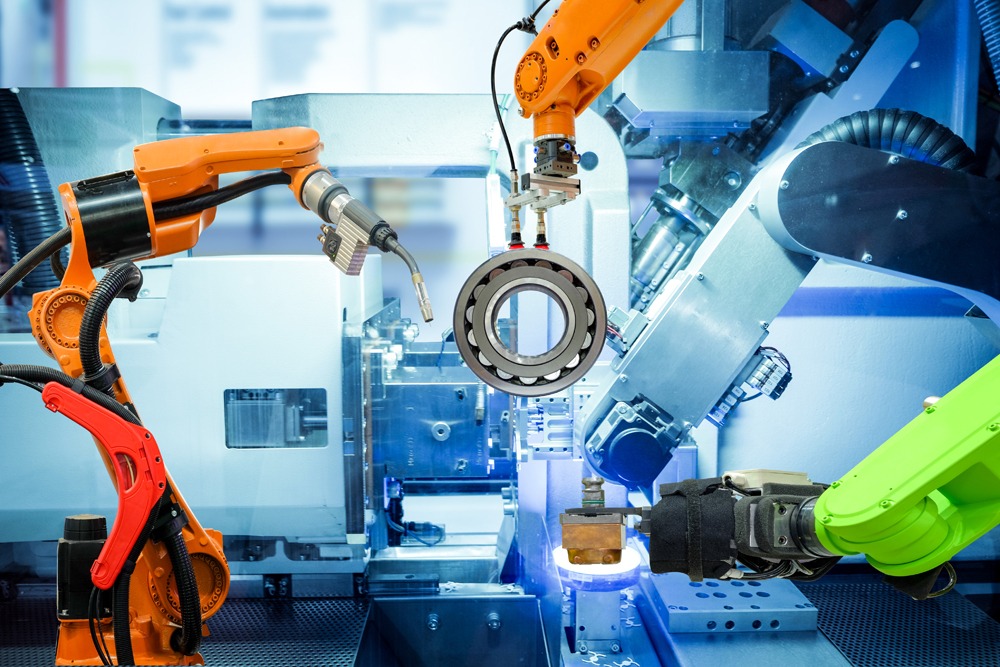In today’s industrial landscape, where efficiency and precision reign supreme, the integration of automation has become not just a trend, but a necessity. Manufacturers are constantly seeking innovative ways to streamline their processes and optimize production. One of the key players in this transformation is MRO Electric, a company at the forefront of providing cutting-edge solutions to various industries.
Automation, in its various forms, has taken center stage in modern manufacturing. It has significantly impacted the way industries operate, offering a wide range of benefits from increased productivity to enhanced safety. In this article, we will delve into the world of automation, exploring its different facets and how companies like MRO Electric are contributing to this revolution.
The Evolution of Automation
Automation in manufacturing is not a new concept. It has been evolving over several decades, from the early days of basic machinery to today’s sophisticated robotic systems. The driving force behind this evolution has been the pursuit of efficiency and quality. As industries grow and become more complex, the demand for automation solutions continues to rise.
Types of Automation
Automation comes in various forms, each catering to specific needs within different industries. Some of the most common types of automation include:
- Robotic Automation: Robots are increasingly being used to perform tasks that are dangerous, repetitive, or require a high level of precision. These versatile machines can be found in automotive assembly lines, food processing plants, and even healthcare facilities.
- Industrial Control Systems: These systems are the backbone of automation in manufacturing. They regulate and monitor various processes, ensuring they run smoothly and efficiently. PLCs (Programmable Logic Controllers) are a vital component of industrial control systems.
- Artificial Intelligence (AI) and Machine Learning: AI and machine learning algorithms are being integrated into manufacturing processes to optimize production. These technologies can analyze vast amounts of data in real-time, making adjustments to improve efficiency and reduce downtime.
- IoT (Internet of Things): IoT devices and sensors are used to collect data from machines and equipment. This data is then analyzed to identify patterns and trends, allowing for predictive maintenance and better resource allocation.
MRO Electric: Empowering Automation
When it comes to automation, reliability and expertise are crucial. This is where MRO comes into play. They specialize in providing essential components and support for the automation industry. From PLCs to servo motors, their extensive product catalog caters to a wide range of automation needs.
One of the standout features of MRO is their commitment to customer service and technical support. In the world of automation, downtime can be costly. Having a trusted partner who can provide prompt assistance and high-quality replacement parts is invaluable.
The Future of Automation
The automation landscape is constantly evolving, and it shows no signs of slowing down. As technology continues to advance, we can expect automation to become even more integrated into our daily lives. However, it’s important to note that automation isn’t just about replacing human workers. Instead, it’s about augmenting their capabilities and enhancing overall efficiency.
Automation also brings about new opportunities for skilled workers. With the increasing complexity of automation systems, there is a growing demand for individuals with expertise in robotics, AI, and industrial control systems. This presents a promising career path for those looking to enter the field.
Challenges and Considerations
While the benefits of automation are undeniable, there are challenges that need to be addressed. One of the primary concerns is the potential for job displacement. As machines take over certain tasks, there is a need for workforce transition and upskilling programs to ensure that employees can adapt to new roles within the automated workspace.
Additionally, cybersecurity becomes a critical aspect when dealing with interconnected automation systems. Protecting sensitive data and ensuring the integrity of automated processes are top priorities for industries adopting automation.
Automation is reshaping the way we manufacture, bringing with it increased efficiency, precision, and opportunities for growth. Companies like MRO Electric are instrumental in providing the necessary components and support for this automation revolution. While challenges exist, the future of automation looks promising, with a focus on collaboration between humans and machines to create a more efficient and productive world.
Author Bio: Originally from the U.S, Rana Tarakji is an SEO Analyst,, the founder of One SEO, a multinational link building company, and the author of “Off-site SEO Guide: A Hands-on SEO Tutorial for Beginners & Dummies”, and a web content specialist who now lives in Beirut, Lebanon. Rana’s work has been published in many print and online magazines and newspapers, such as Entrepreneur, Life Hacker, Upwork, Christian Today, and many more.

